Israel Shoots Down Drone From Lebanon, Military Says
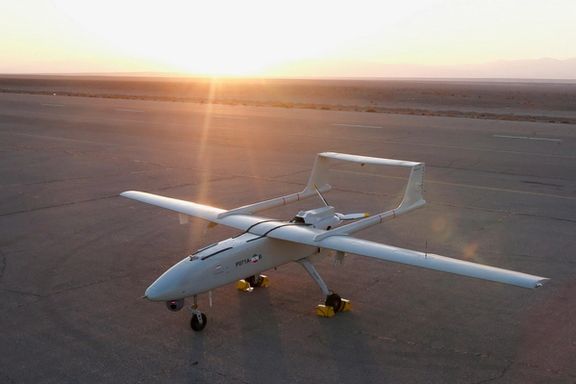
Israel shot down a drone that had crossed over from Lebanon on Thursday, its military said in a statement.

Israel shot down a drone that had crossed over from Lebanon on Thursday, its military said in a statement.
"A short while ago, IDF (Israel Defense Forces) soldiers identified and downed a drone crossing from Lebanese territory into Israeli territory towards the town of Zar'it," the military said.
It did not immediately identify who had sent the drone from Lebanon and released a photo of a UAV lying in a thicket of thorns. "The IDF will continue to prevent any attempt to violate Israeli sovereignty," the military said.
Iran-backed Hezbollah controls a wide strip of land along Israel's borders, with fighters, weapons and military installations covering southern Lebanon to Israel's northern border. Hezbollah is financed and armed by the Islamic Republic of Iran.
Last month, Israel said Lebanese armed group Hezbollah was behind a rare roadside bomb attack that wounded a motorist in northern Israel in March, and in the past has said it shot down the group's drones.
In April, rockets were fired from Lebanon into Israel during Palestinian Israeli clashes. Lebanon claimed that Palestinians on its territory had fired the rockets, and not the Hezbollah, creating a convenient ambiguity to relieve Israel of the pressure to retaliate against Hezbollah.
Iran has been encouraging all its proxy forces in the region to intensify attacks against Israel this year.
Iran-backed Hezbollah and Israel fought a month-long war in 2006 and have traded fire on several occasions since, but have avoided a large-scale confrontation.
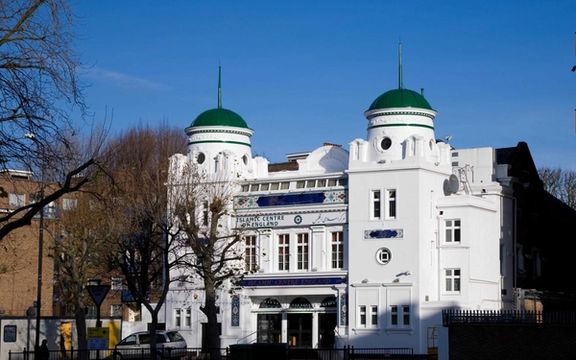
The Islamic Center of England, affiliated with the office of Iran’s Supreme Leader, has been shuttered "until further notice".
A banner has been installed on the closed door of the center that reads, “After receiving the concerns of the community and for their safety, we are saddened to inform you that all upcoming programs, including prayers, have been suspended until further notice.” The message was later removed.
The center was closed on Wednesday following an investigation by the UK Charity Commission into how it was run, following weeks of efforts by the charity watchdog to take control. The Telegraph cited unnamed sources as saying that "the Iranian regime decided to pull the plug on the operation rather than lose control to an interim manager appointed by the Charity Commission.”
According to the Charity Commission, the building was closed down, but the center’s charity will be run by the interim manager -- a senior partner at an international law firm identified as Emma Moody – who has been appointed “due to the trustees’ failure to comply with their legal duties and responsibilities and their failure to protect the charity’s assets”.
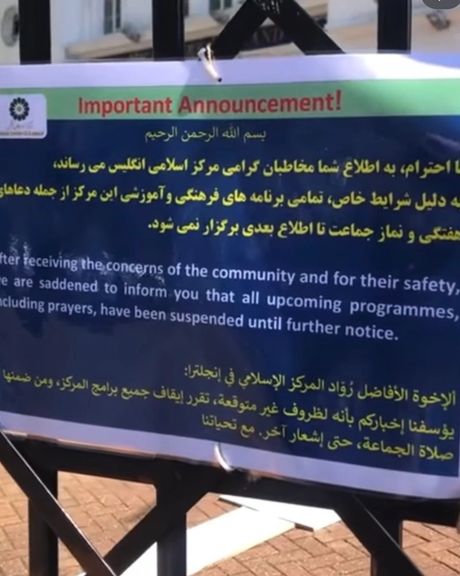
The inquiry into the charity was opened in November last year after the watchdog issued an official warning over “serious governance concerns” as well as the content of its website and the events it organizes.
Founded in 1995 and opened officially in 1998, the Islamic Center of England Ltd (ICEL) is a religious and cultural institute run by Ali Khamenei’s representative in the UK, Seyyed Hashem Mousavi, and funded by the Islamic Republic. The center, which hosted a vigil for Qassem Soleimani, head of IRGC’s extraterritorial Quds force who was killed in a US drone strike in 2020, has been called the cultural arm of the regime.
Senior UK officials have been calling for the closure of the center for years, with MP Alicia Kearns, the chair of the foreign affairs select committee, describing it as the "London office" of the Iranian regime. Theresa Villiers, a member of the intelligence and security select committee, called the charity "the voice" of Khamenei in the UK.
As calls continue to shut down the center, Security Minister Tom Tugendhat last week described it as a "vile threat" against the country.Tugendhat told The Times that the government was “pulling together” to deal with “this vile threat that’s taken over a country and is now threatening ours.”
During a parliamentary debate last week, several UK lawmakers called for the Islamic Republic’s outpost to be closed.
Tugendhat stated that MPs are “absolutely right” to be worried about such “cultural centers” in Britain, adding: “Sadly, the Islamic Centre for England is not alone and the work of the IRGC is not limited to those Iranian proxy organizations.”
Previously, a group of Iranians had prepared an online petition for the closure of the Islamic Center of England, which was signed by tens of thousands of people.
In recent months while global rallies against the Islamic Republic are growing, Iranians have demonstrated many times in London demanding the closure of the center.
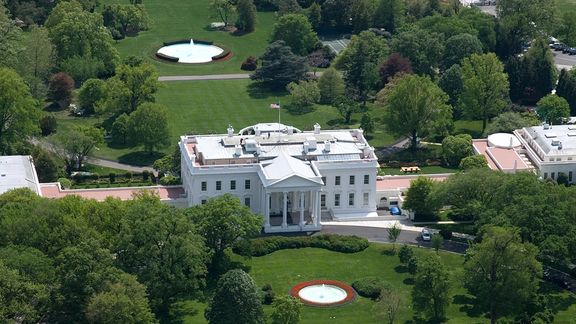
A delegation of Israeli officials is expected to arrive in Washington next week to discuss Iranian nuclear progress.
Four Israeli and US officials told Axios that Minister for Strategic Affairs Ron Dermer and National Security Adviser Tzachi Hanegbi will also discuss other regional issues including a possible Israel-Saudi Arabia peace deal.
Meetings are said to be planned between Israeli officials and White House national security adviser Jake Sullivan as well as other senior State Department authorities, according to the Axios report.
According to the Israeli Prime Minister's Office, the date of the meetings has not been finalized yet. A spokesperson for the White House National Security Council said they could not confirm anything.
Recently, Israeli officials have escalated their rhetoric about Iran's nuclear program and the possibility of a military strike.
General Herzi Halevi, IDF Chief of Staff, said on Tuesday that Iran's uranium enrichment is more advanced than ever. He added that Israel is closely monitoring "other fields" necessary for nuclear capability, indicating Iran's possible weaponization efforts.
“There are possible negative developments on the horizon that could lead to action. We have capabilities and others have capabilities," Halevi stressed.
Separately on Tuesday, Hanegbi said Israel hopes non-military means can solve the Iranian nuclear crisis, but stressed Israel is preparing for the possibility of confrontation.
An Associated Press report Monday showed the regime is building a deep underground nuclear facility near the Zagros Mountains in central Iran, close to the Natanz nuclear site.
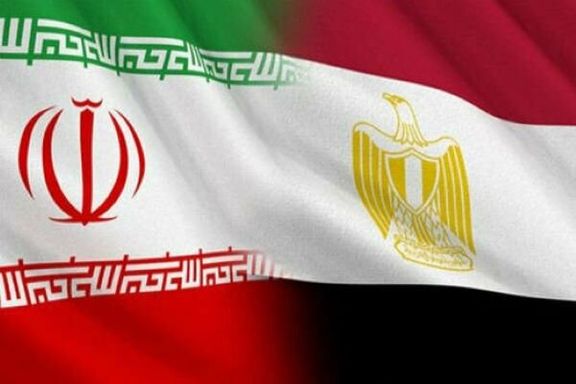
In an effort to normalize relations between the two regional powers, Egypt and Iran are preparing to resume diplomatic ties.
Two officials told The National Daily that President Abdel Fattah El Sisi and Iran's Ebrahim Raisi have agreed to meet by the end of the year.
It comes after Oman's ruler, Sultan Haitham bin Tarik, spent two days in Egypt where he discussed Cairo's relations with Tehran with El Sisi.
The Iranian government, for its part, has said that it wants to improve relations with Egypt.
Earlier this month, Iranian lawmaker Fada-Hossein Maleki, a member of the parliament’s National Security and Foreign Policy committee, said in an interview with Tasnim news agency that talks to bolster ties between Iran and Egypt are being held regularly in Iraq.
Iranian Foreign Minister Hossein Amir-Abdollahian also told IRNA in early May that “We have always welcomed the improvement of relations between Tehran and Cairo.”
Egypt has not yet commented on Iranian relations, but regional media have reported that the ties are thawing.
Tehran and Cairo’s history of on-off relations predates the establishment of the Islamic Republic. Iran’s relations with Egypt, a close ally of Saudi Arabia and other Persian Gulf nations, have been fraught since the Shah fell in 1979. His subsequent refuge in Egypt, where he died and was buried in 1980, damaged relations.
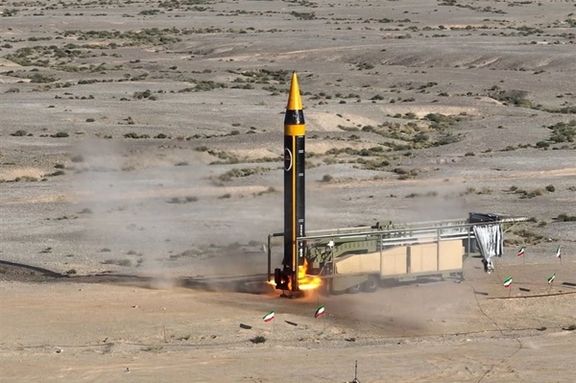
Iran unveiled the fourth generation of its Khorramshahr ballistic missile, called Kheibar, with a range of 2,000 kilometers.
State media reported that the country successfully tested the ballistic missile on Thursday, two days after Israel's military chief raised the prospect of "action" against Tehran.
Lieutenant-General Herzi Halevi, chief of Israel's armed forces, warned: "Iran has advanced with uranium enrichment further than ever before ... There are negative developments on the horizon that could bring about (military) action.”
Iran, which has one of the biggest missile programs in the Middle East, says its missiles can reach Israel and US bases in the region.
Tehran has said it will continue to develop its "defensive" missile program despite opposition from the United States and European countries.
"Our message to Iran's enemies is that we will defend the country and its achievements. Our message to our friends is that we want to help regional stability," said Iranian Defense Minister Mohammadreza Ashtiani.
Iran claims its ballistic missiles are a deterrent and retaliatory force against the United States, Israel, and other potential regional adversaries.
Efforts to revive Tehran's 2015 nuclear deal have stalled since last September amid Western fears about Tehran's accelerating nuclear advances.
Iran's nuclear activities were restricted by the nuclear agreement, which Washington ditched in 2018, extending the time it would take for Tehran to produce nuclear material for a bomb. Iran denies pursuing nuclear weapons.
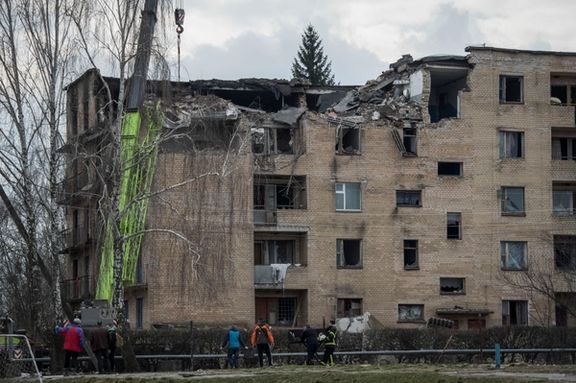
Ukraine said Thursday it had shot down all 36 Iranian-made drones launched by Russia in overnight attacks probably targeting critical infrastructure and military facilities.
President Volodymyr Zelenskyy said it had been an "uneasy night" but commended the work of air defenses.
"Continuing to terrorize Ukraine, the enemy used 36 Shahed (drones). None of them reached their target. Thanks to our air defense forces for the 100% result," he wrote on the Telegram messaging app.
Zelenskyy urged Iran on Wednesday to reconsider the supply of the killer drones to Russia in order to stop their slide into "the dark side of history."
Since last October, Moscow, which launched its full-scale invasion in February last year, has regularly sent waves of drones to attack targets in Ukraine. Although they are slow, drones are cheaper and more expendable than advanced missiles.
Some experts say that Russia's use of the Shahed drones, costing around $20,000 each, either is meant to confuse Ukrainian air defenses during missile attacks, or to force Kyiv to spend its expensive Western-supplies anti air missiles.
"The enemy likely aimed to attack critical infrastructure and military facilities in the western regions of the state," the Ukrainian air force said on Telegram.
It said Iran-made Shahed 136 and Shahed 131 drones had been used.
The head of Kyiv's military administration said the capital had come under attack by several waves of drones but that all had been shot down. He said it was the 12th attack on Kyiv this month.
Regional and military authorities in southern and western Ukraine reported shooting down drones.
Western powers have strongly objected to Iran's decision to arm Russia with the Kamikaze drones, and possibly other weapons and ammunition.
With reporting by Reuters